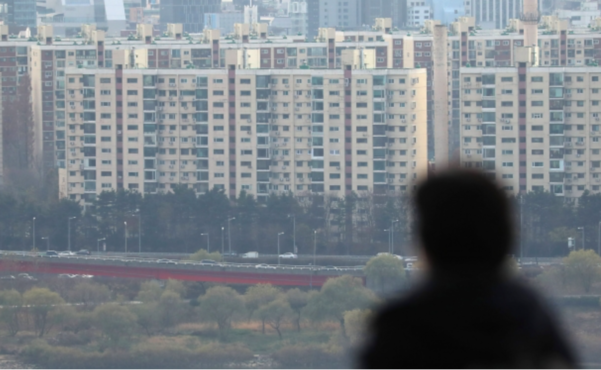Input 2021.02.14 13:02
According to the Seoul Real Estate Information Plaza on the 14th, from August of last year to January of this year, the number of jeonse transactions in Seoul apartments was totaled 7,5684. Among them, transactions with monthly rent, called’anti-jeonse’, accounted for about 33% of the total lease transactions with 2,4909 cases. In the six months just before the enforcement of the new lease law at the end of July last year (from February to July of last year), reverse tax transactions accounted for 28% of all lease transactions, an increase of about 5 percentage points.

However, in October last year (29.6%) was the only month in which the proportion of the reverse trend was less than 30% for six months after the enforcement of the law.
By region, this phenomenon was observed in both the Gangnam area where expensive charters were concentrated and the outskirts of Seoul. In Seocho-gu, the proportion of the anti-war tax recorded around 35% in the first half of last year, but dropped to 28.5% in July last year, just before the enforcement of the new lease law. Then, in August last year, it rose to 33.8%, and in November, it rose to 50.5%, and it reached 43.2% in December.
In Songpa-gu, the rate of reversal was only 25-27% in May-July last year, but jumped to 45.7% in August and remained around 35% in August and rose again to 44.3% in November. In the outskirts of Seoul, Eunpyeong-gu’s anti-war trade rose from 19 to 25% from January to August last year, then rose to 27.1% in September, 30.5% in December, and 38.8% in January this year.
As the rental price jumped significantly, the anti-war rent also increased. In the case of the 84㎡ exclusive area for Helio City in Garak-dong, Songpa-gu of the 9510 household complex, a number of transactions were made at around KRW 100 million in deposit and 2.5 million KRW in monthly rent in the first half of last year. The equilibrium was traded for a deposit of 100 million won and a monthly rent of 3 million won (9th floor) in October last year after the enforcement of the new lease law, and in January of this year, a contract was written for a deposit of 100 million won and 3.3 million won (23rd floor) of monthly rent.
For the 59㎡ dedicated to Eunpyeong New Town Bakseokgogae (Hillstate 1 Complex) in Jingwan-dong, Eunpyeong-gu, the net rental price without monthly rent rose 150 million won to 550 million won last month from 400 million won in the first half of last year. The monthly rent rose from KRW 800,000 to KRW 150 million this year to KRW 1 million.
